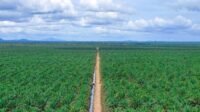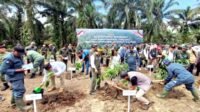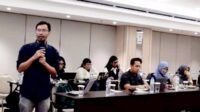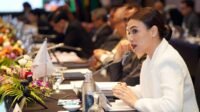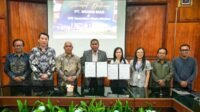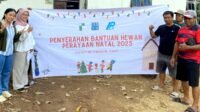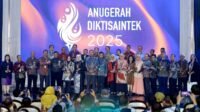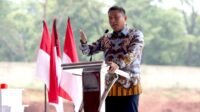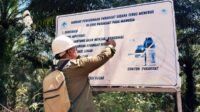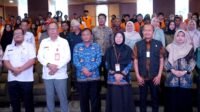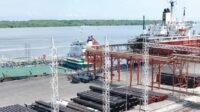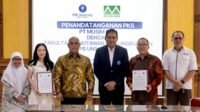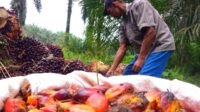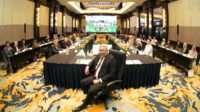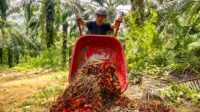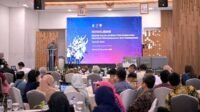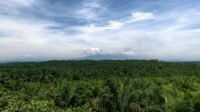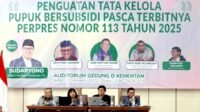PALMOILMAGAZINE, JAKARTA – Academics and researchers have raised concerns over the National Dashboard, an information system introduced by the government to enhance sustainable commodity governance. Critics argue that the system lacks transparency, risks enabling moral hazard within the bureaucracy, and fails to serve as an effective governance tool.
Grahat Nagara, an academic from STHI Jentera, stressed the importance of ensuring that information systems like the National Dashboard do not become a gateway for bureaucratic moral hazards. “Most existing information systems are inaccessible to the public. There is no traceability-based information available that could serve as a foundation for public accountability tests,” Grahat stated in an official release to Palmoilmagazine.com on Thursday (19/12/2024).
Using the example of illegal palm oil exports, Grahat highlighted the role the government’s information system should play in controlling data exchange and mitigating information asymmetry. He emphasized the need for the government to review the list of information currently exempted from public access.
Also Read: East Kutai Leads Efforts Toward Global Sustainability in Palm Oil Sector
“For instance, the Decree of the Secretary General of the Ministry of Agriculture Number 19 of 2022 restricts access to licensing data and plantation maps under the pretext of protecting Indonesia’s natural resources. However, stakeholders concerned with the impacts of natural resource exploitation policies are unable to access this vital information,” Grahat explained.
Sayyidatihayaa Afra, a researcher at Satya Bumi, also criticized the National Dashboard policy for not being transparent and limiting public access. According to her, information systems related to sustainable commodities should be built with high credibility in order to increase commodity competitiveness in the global market.
He also highlighted the statement of the Indonesian government representative at the Joint Task Force (JTF) meeting in Brussels, which questioned the transparency requirements in the European Union Deforestation-Free Regulation (EUDR). “The government argues that sharing data with other countries violates applicable laws in Indonesia, even though Law Number 27 of 2022 concerning Personal Data Protection does not prohibit data sharing, except individual data without consent,” said Hayaa.
According to him, the transparency, data traceability and due diligence obligations required under the EUDR could actually be an opportunity to improve Indonesia’s commodity governance. “The National Dashboard should be designed to support accountability, not just be an administrative tool,” Hayaa emphasized.
Criticisms of the National Dashboard suggest that the government needs to evaluate the system’s effectiveness in supporting sustainable governance. In addition, policies that close public access to data are not in line with the need to increase transparency and accountability.
With increasing global demands such as the EUDR, the government is expected to build information systems that are more inclusive, transparent and supportive of strengthening sustainable commodity governance. Without significant changes, the National Dashboard risks becoming an ineffective and counter-productive policy for natural resource governance efforts in Indonesia. (P2)



